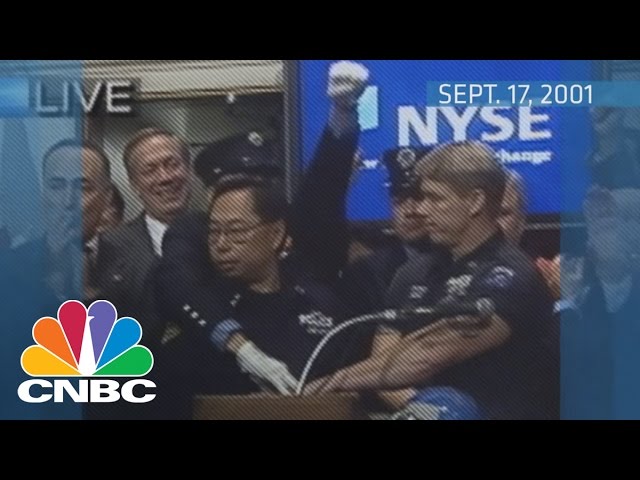Would a Stock Market Shutdown Halt the Ugly Dow Jones Crash?
As investors are panic selling due to the coronavirus, we can wonder if a stock market shutdown would be a good idea.

The system of trading halts already in place is aimed to limit panic selling. Let’s trust this for now and wait to see how the coronavirus crisis evolves before taking drastic measures such as shutting down the financial markets. | Source: Spencer Platt/Getty Images/AFP
- Investors are panic-selling because the coronavirus is spreading fast across the world.
- A temporary stock market shutdown looks like a solution to calm down the markets.
- The coronavirus crisis is not comparable to 9/11. We should approach the situation differently.
On Thursday, the U.S. stock market fell so hard after the opening bell that a “circuit breaker” halted trading for the second time in less than a week. The Dow Jones suffered its worst day since 1987, plunging 2,353 points (10%) and deep into bear market territory.

U.S. stocks rebounded on Friday. But we can expect more downsides as the coronavirus crisis is far from over.
Mohit Kumar, managing director at Jefferies International Ltd , said:
The market will need much more to get its confidence back. The economic slowdown is because consumers won’t spend as they don’t go out or travel — you can’t make them spend by giving cheaper money. What you need is fiscal stimulus.
A Stock Market Shutdown Could Cause More Panic
Conor Sen, a portfolio manager for New River Investments, argues in a Bloomberg Opinion article that financial markets need a temporary shutdown, just like the one that followed 9/11.
To avoid a stock market collapse, the NYSE and the Nasdaq did not open for trading on the morning of September 11, 2001. They stayed closed until September 17 in anticipation of panic selling and market chaos following the attacks.

Sen questions how people can trade stocks and bonds if they are confined in their homes. What we can answer to this is that people can trade stocks and bonds wherever they are, as trading is done mostly electronically nowadays.
If the coronavirus continues to spread through New York, the New York Stock Exchange could close its trading floor. But even if the trading floor closes, market activity could continue.
Second, on the first day of trading on the NYSE after 9/11, the Dow Jones fell by 684 points (7.1%), which was then its biggest daily point loss in history. The stock market shutdown didn’t stop the panic; it just delayed panic selling.

Instead of calming things down, a stock market shutdown could send a signal that the coronavirus is out of control. That would cause even more panic.
Investors will only be reassured when the coronavirus slows down, or at least when they grow more confident in the government’s response.
There Is Too Much Uncertainty To Gauge The Impact On The Dow
There are practical problems too. We don’t know how long the coronavirus outbreak will last and how severe the damage will be. So, how could we decide how long a shutdown should last?
Even if we close the stock market for a week, that might not be enough to halt the Dow’s brutal downturn. The coronavirus crisis will likely last for several weeks or months.
Besides, we cannot compare the coronavirus to 9/11. That event was a terrorist attack, and the destruction was limited to a particular area. The coronavirus is more like a natural disaster. It spreads all over the world and is causing more damage to the airline industry than 9/11 .

The system of trading halts already in place is aimed to limit panic selling.
Let’s trust this for now and wait to see how the coronavirus crisis evolves before taking drastic measures such as shutting down the financial markets.
Disclaimer: This article represents the author’s opinion and should not be considered investment or trading advice from CCN.com.
This article was edited by Josiah Wilmoth.